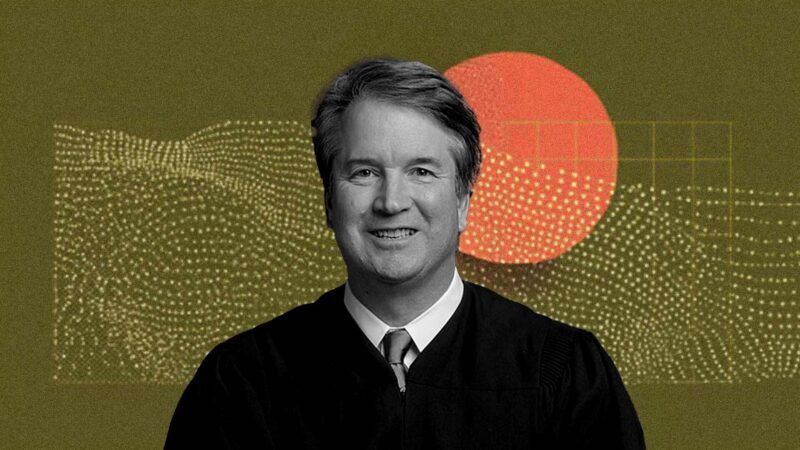The Class Action Threat to Trump's Birthright Citizenship Order
Plus: A fond farewell to Black Sabbath.

Barely two weeks after the U.S. Supreme Court limited the use of nationwide injunctions by federal judges, a federal judge once again blocked President Donald Trump's executive order on birthright citizenship from going into effect nationwide. But if you think that sounds like the actions of a judge gone rogue, think again.
In fact, this latest ruling against Trump's birthright citizenship order actually represents a careful judicial adherence to what the Supreme Court said on June 27. Yes, the Court's big ruling in Trump v. CASA did tell federal judges to lay off on nationwide injunctions. But the Court also told those same judges that the path remained clear for them to certify national class action lawsuits against Trump's order in appropriate cases. And so, here we are.
You’re reading Injustice System from Damon Root and Reason. Get more of Damon’s commentary on constitutional law and American history.
This latest ruling comes in a case called "Barbara" v. Trump. Perhaps the best way to understand what's going on with it is by first revisiting the concurring opinion written in the nationwide injunctions case last month by Justice Brett Kavanaugh.
"In the wake of the [Supreme] Court's decision," Kavanaugh wrote, "plaintiffs who challenge the legality of a new federal statute or executive action and request preliminary injunctive relief may sometimes seek to proceed by class action…and ask a court to award preliminary classwide relief that may, for example, be statewide, regionwide, or even nationwide." And that class-action approach, Kavanaugh explained, was perfectly fine. "Today's decision," he wrote, simply "will require district courts to follow proper legal procedures when awarding such relief."
This is precisely what happened in "Barbara" v. Trump. According to the July 10 opinion of Judge Joseph Laplante of the U.S. District Court for the District of New Hampshire, the Trump administration is now forbidden from enforcing its executive order against "all current and future persons who are born on or after February 20, 2025," and whose parents are either unlawfully present in the U.S. or whose parents are temporary visitors to the U.S.
"Because enforcement of the Executive Order would likely constitute unlawful behavior towards the entire class" of such persons, Laplante wrote, "and because a single injunction and declaratory judgment would provide complete relief to every member of the class, the class fits comfortably into the Rule 23(b)(2) category." Rule 23 is the provision of federal law governing such class action litigation.
Laplante also added that he had "no difficulty concluding" that the entire class was entitled to such relief because "all class representatives could suffer irreparable harm" if the courts allowed Trump's order—which the judge described as being "of highly questionable constitutionality"—to go into effect. (In case you're wondering, Laplante was appointed to the federal bench in 2007 by Republican President George W. Bush.)
In short, SCOTUS told federal district judges that they could still block Trump's birthright citizenship order from going into effect nationwide if they followed "proper legal procedures" in a national class action case. That is what Laplante did in this case. He blocked Trump's order in a well-reasoned ruling that was well-grounded in Rule 23.
It's possible that the Supreme Court will see things differently on appeal and reject Laplante's class action certification. But for now, at least, this case represents the strongest legal threat yet to Trump's efforts to strip the constitutional rights of millions of U.S.-born children.
Odds & Ends: A Fond Farewell to Black Sabbath
The mighty Black Sabbath played their final concert on July 5 before a massive hometown crowd in Birmingham, England, and I would be remiss in my duties if I failed to say a few words in tribute to the heavy metal godfathers whose music I have loved for so long.
Black Sabbath is one of those bands whose reach extends practically beyond measure. Do you like the hard rock stylings of Guns N' Roses? Say thanks to Sabbath. Ditto for the spaced-out desert jams of Queens of the Stone Age, or for the guttural blasts of Bolt Thrower, or for the galloping thrash of Metallica, or even for Ozzy Osbourne's own legendary solo career. If you've ever enjoyed any kind of hard rock or heavy metal music, you really do owe Sabbath the kind of debt that you'll never be able to pay back in full.
And if you are somehow unfamiliar with the band's music, allow me to recommend some of my favorite Sabbath songs for your listening pleasure. This is the good stuff, so don't forget to play it loud.


Show Comments (49)